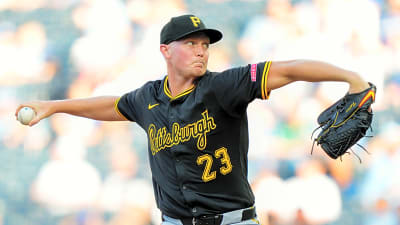On Thursday, the European Court of Justice released its ruling on the case between the remaining European Super League teams (Real Madrid and Barcelona), UEFA, and FIFA.
The Court decided that the rules used by UEFA and FIFA back in 2021 to punish Superleague clubs were contrary to EU law. However, as European law academic Antoine Duval explained, this is a less dramatic blow to UEFA than it might initially seem. The Court explicitly stated that UEFA still has the power to regulate and put conditions on players and teams participating in alternative competitions that challenge UEFA. However, these rules must be “transparent, objective, and non-discriminatory”, which is the standard that UEFA’s rules back in 2021 did not meet. This means UEFA can develop a new authorization framework that does fit these legal criteria, and UEFA already claims they have made changes in this direction.
Now let's turn to #SuperLeague.
For now, the ruling is mostly interpreted as a massive win for the #ESL, but it is less dramatic for #UEFA/#FIFA than it might appear at first sight.
Here is why
#Sportslaw #EULaw #Antitrust
— Antoine Duval (@Ant1Duval) December 21, 2023
If the previous paragraph sounded a bit messy and unclear on which side “won”, it’s because that’s the reality of the situation. The European Court put some limits on what UEFA and FIFA can do, but the ruling is also not an endorsement of a Superleague project. Unsurprisingly, both sides claimed victory after the ruling was announced.
Both sides claim that they will ‘save football’, but what do they really mean by that?
The Superleague organizers think that saving football means generating as much money as humanly possible so clubs around Europe can benefit from higher revenues. They would like European football to get even bigger media and marketing deals that could rival the ones of the American NFL. However, reaching those revenue levels requires a more closed league, with more games among the biggest teams and less relegation of those big teams due to underperformance. The current uncertainty of who makes it to UEFA club competitions every year is not seen as good for business.
That’s why the new Superleague format has a more limited promotion and relegation system than UEFA’s competition. That’s why Bernd Reichart goes on the radio and tries to spin Union Berlin’s participation in the Champions League as a bad thing. Ultimately, the Superleague believes that to get a bigger pot of money, they need to make upward mobility in European football even more complicated than what it currently is.
It's amazing that Reichart doesn't realise the most important jury A22 has to win over is that of match-going fans, especially German fans. And he won't do that with a ridiculous claim like saying Union Berlin fans felt this year’s Champions League experience was “a punishment”. https://t.co/T6wAZpmUqc
— Euan McTear (@emctear) December 22, 2023
UEFA pretends to defend a more traditional and open system with more upward mobility. The reality, however, is that for several decades already, they have failed at defending that system from the influence of capital. To many of the rich European clubs, UEFA’s financial fair play rules are just a minor obstacle at best.
Ultimately, the biggest clubs that generate the most money have much power to steer UEFA in the direction they want or work around their regulations. And with the European Court now limiting UEFA’s powers to a degree, these clubs now have a legal pathway towards a Superleague, giving them even more bargaining power in the future.
Due to these trends, I believe that UEFA and the wealthiest clubs are ‘doomed’ to reach an understanding. This new ruling may have changed the speed at which changes will happen, but the direction European football is headed has been clear for several decades, and UEFA has done little to change it. Neither UEFA nor the Superleague are interested in a vision of football that makes less money but becomes more sustainable and has more controlled spending. And let’s be honest, many fans do not want their clubs and leagues to follow that path either. Only a few countries, like Spain and Germany are moving towards a more sustainable football model.
In the end, the football world follows the same direction as the rest of our society: a globalised world where generating more money and growing more are the supreme principles regardless of consequences. And both in football and the rest of the world, this unsustainable growth sees its financial gains increasingly concentrated into smaller groups.
In the end, if a Superleague does not materialise, it won’t be because ‘UEFA saved football from the rich clubs’. It will be because the rich clubs got what they wanted from UEFA. One way or another, we are bound to see the rich clubs get their way and concentrate even more money from European football into themselves. That’s great if you’re a fan of one of these clubs, but not so great if you want the rest of the football pyramid to do better.
More must-reads:
- MLS summer transfers: Could former top U.S. prospect land in L.A.?
- Chiefs agree to record-breaking four-year extension with standout OL
- The 'No. 1 overall MLB Draft picks' quiz
Breaking News
Trending News
Customize Your Newsletter
 +
+
Get the latest news and rumors, customized to your favorite sports and teams. Emailed daily. Always free!








